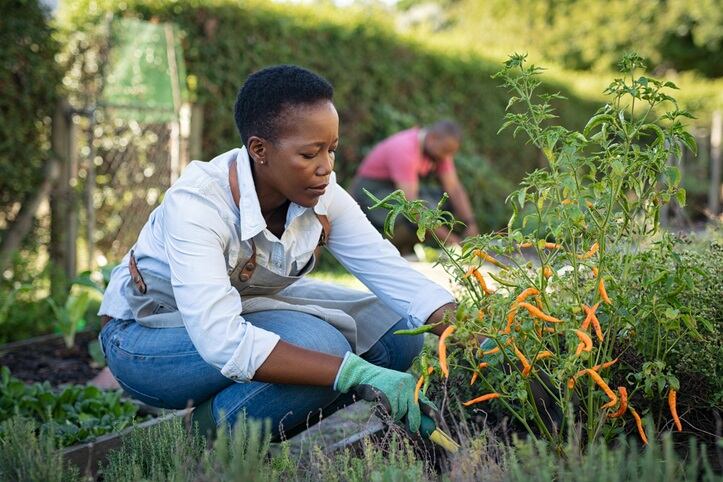In the year since the Consumer Brands Association rebranded from the Grocery Manufacturers Association, 18 CPG companies have returned to the fold or joined for the first time – representing a 30% increase in membership that includes both large established players and emerging brands.
Among the companies to join CBA in 2020 is the Campbell Soup Company, the return of which is symbolic of the effort invested by Geoff Freeman and his team since he took the trade group’s helm as president and CEO in mid-2018 after several high-profile companies, including Campbell, left in late 2017.
When Campbell left GMA, CEO Denise Morrison said at the time it was because the company was at odds with some of the trade group’s positions and because it wanted to align with more smaller food groups.
Now, three years later, a Campbell’s spokeswoman lauded CBA for “driving a focused, consumer-centric agenda that aligns well with Campbell’s goals.”
CBA also has attracted many smaller and emerging companies, including ButcherBox, Recess, and Ripple Foods – all which also joined in 2020.
‘People want to be associated with a winner’
CBA’s growth and the industry’s endorsement of the rebranded trade group’s agenda and approach to uniting the diverse packaged goods industry has been a “crowning jewel” in an otherwise very challenging year, Freeman told FoodNavigator-USA.
He explained that while COVID “steals the fun for most of us from what we are doing,” he and his team still feel rewarded by CBA’s growth and accomplishments over the past year.
“When I joined in 2018, I was certainly aware from experiences in other industries that people want to be associated with a winner. The inverse is true as well, and that is something we inherited in 2018, which was people were distancing themselves from an organization that was troubled. But to be at this point where we are now in early ’21, where Consumer Brands is attractive, where Consumer Brands is a place where people want to come together is just a rewarding result for myself, for our entire team,” he said.
He attributed the association’s growth in part to its positive and proactive agenda, which is centered on four pillars that represent the CPG industry’s aligned interests of driving smart uniform regulation, enhancing packaging sustainability, building frictionless supply chains and building trust.
“The key to [building consensus and driving change as an industry] is asking the right questions. And you start by asking the question, ‘Where is it that we are aligned in interest?’ Not where are we aligned on positions, because the positions will vary, but where we are aligned on interests,” Freeman said.
“I think where the predecessor organization got in trouble is it focused on a lot of issues that didn’t align interests, and that is a no-win situation,” he explained. “If you are focusing on something and two-thirds of the industry is saying at any one point, ‘Not my problem,’ then you are going to be in a world of trouble. You have to find the issues that 100% of the industry is saying, that is my problem. We may have differences of opinion in terms of how we solve it, but we can have progress if every issue we tackle universally people say that is my problem.”
He added: “That is the model of this organization. When the industry said, ‘that is our problem,’ then that is the opportunity for us to go get stuff done.”
A sampling of successes
Even though the pandemic has overshadowed and reshaped much of what the CPG industry has done in 2020, CBA still successfully pushed forward its agenda, much of which also addressed pandemic-related challenges.
For example, “when it came to smart regulations … we worked with FDA to do virtual inspections. You don’t always have to have somebody in the plant. There is a more efficient way to do these things,” Freeman said. Also on the regulatory front, the group established a CBD advisory board.
On the supply chain side, CBA helped keep store shelves stocked even during peak pantry stocking early in the pandemic by working with regulators to adopt a switch and notify approach to supply changes, ease labeling disclosures to allow for bulk sale at retail, and ease ‘hours of service’ rules for transportation to keep goods moving.
In terms of sustainability, the group has pursued updating and standardizing recycling infrastructure and policies, among other moves.
CBA will remain laser focused on four pillars
Looking forward, Freeman said CBA will continue to focus on the four pillars on which it founded its rebranded trade group.
“We aren’t looking to add new lanes here where we focus, but we are looking to find new opportunities within the packaging pillar, within the supply chain pillar, within the smart regulation pillar and to the extent that new issues emerge within those lanes, then they are worthy of discussion,” Freeman said.
For example, he noted within smart regulations, industry stakeholders are interested in creating a more level playing field around marketing claims.
“I don’t have a position on what is ‘natural,’ what is considered ‘healthy,’ per se, or other things like that. But, if those claims are going to be made and not be regulated, then we are creating an unbalanced playing field. We need the federal government to do its job. We need the federal government to provide the industry with clear standards and as it does that, our businesses can work around that,” Freeman said.
“It is in the absence of clear and effective leadership that causes great inefficiencies in our industry. And that is the type of thing we seek to solve,” he added.
By holding the line and continuing to pursue solutions to universal industry challenges, Freeman said he expects CBA to see steady membership growth equal to or higher than that achieved in 2020.
“We are just at the earliest stages of growth and our ability to unite the common interests of the industry,” he concluded.




